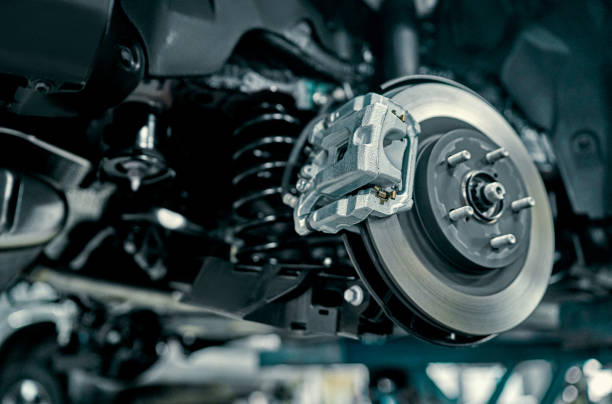January 23, 2024
Can disk brakes fail?
Yes, disk brakes can fail under certain circumstances. Here are some common reasons why disk brakes might fail:
- Wear and Tear: Over time, the components of a disk brake system, such as brake pads and rotors, can wear down. If not properly maintained or replaced when necessary, this can lead to brake failure.
- Brake Fluid Leaks: Brake fluid is essential for transmitting the force from the brake pedal to the brake calipers, which then clamp down on the brake rotor to stop the vehicle. If there’s a leak in the brake fluid system, it can result in decreased braking performance or complete failure.
- Caliper Malfunction: The brake calipers are responsible for applying pressure to the brake pads, which then press against the rotor to slow down or stop the vehicle. If a caliper seizes or malfunctions, it can lead to uneven braking or a total loss of braking power.
- Contamination: Contaminants like oil, grease, or dirt on the brake pads or rotor surfaces can reduce friction and compromise braking performance. This can happen due to improper maintenance or environmental factors.
- Overheating: Excessive heat can cause brake fade, where the braking performance diminishes due to the brake fluid boiling or brake pads and rotors becoming too hot to function effectively. This can occur during prolonged or aggressive braking, such as descending steep hills or driving at high speeds.
- Mechanical Issues: Other mechanical issues, such as misaligned brake pads, warped rotors, or damaged brake lines, can also contribute to brake failure.
Regular maintenance, including inspections, brake pad and rotor replacement as needed, and ensuring proper brake fluid levels and quality, can help prevent brake failure. Additionally, paying attention to warning signs such as squealing noises, decreased braking effectiveness, or unusual vibrations can help identify potential brake problems before they lead to failure.
How long do disc brakes last?
The lifespan of disc brakes can vary depending on several factors including driving habits, environmental conditions, quality of components, and maintenance practices. However, in general, here are some estimates for the lifespan of disc brake components:
- Brake Pads: The lifespan of brake pads typically ranges from 30,000 to 70,000 miles (48,000 to 112,000 kilometers), but this can vary greatly depending on driving conditions. Stop-and-go city driving and frequent braking will wear out brake pads more quickly than highway driving with fewer stops.
- Rotors: The lifespan of brake rotors can vary widely depending on factors such as driving conditions, vehicle weight, and quality of the rotors. On average, brake rotors can last anywhere from 30,000 to 70,000 miles (48,000 to 112,000 kilometers). However, some high-quality rotors can last even longer, while lower-quality rotors may wear out more quickly.
- Brake Fluid: Brake fluid should be replaced periodically according to the manufacturer’s recommendations, typically every 2 to 5 years. Failure to replace brake fluid can lead to brake system problems and reduced braking performance.
- Calipers: Brake calipers are less likely to wear out compared to brake pads and rotors, but they can still fail due to issues such as corrosion, leaks, or seizing. Proper maintenance and inspection can help prevent caliper failure.
Regular inspection and maintenance of the brake system are essential for ensuring optimal performance and safety. It’s important to pay attention to signs of brake wear, such as squealing noises, reduced braking performance, or vibrations, and to address any issues promptly to prevent further damage to the brake system.

